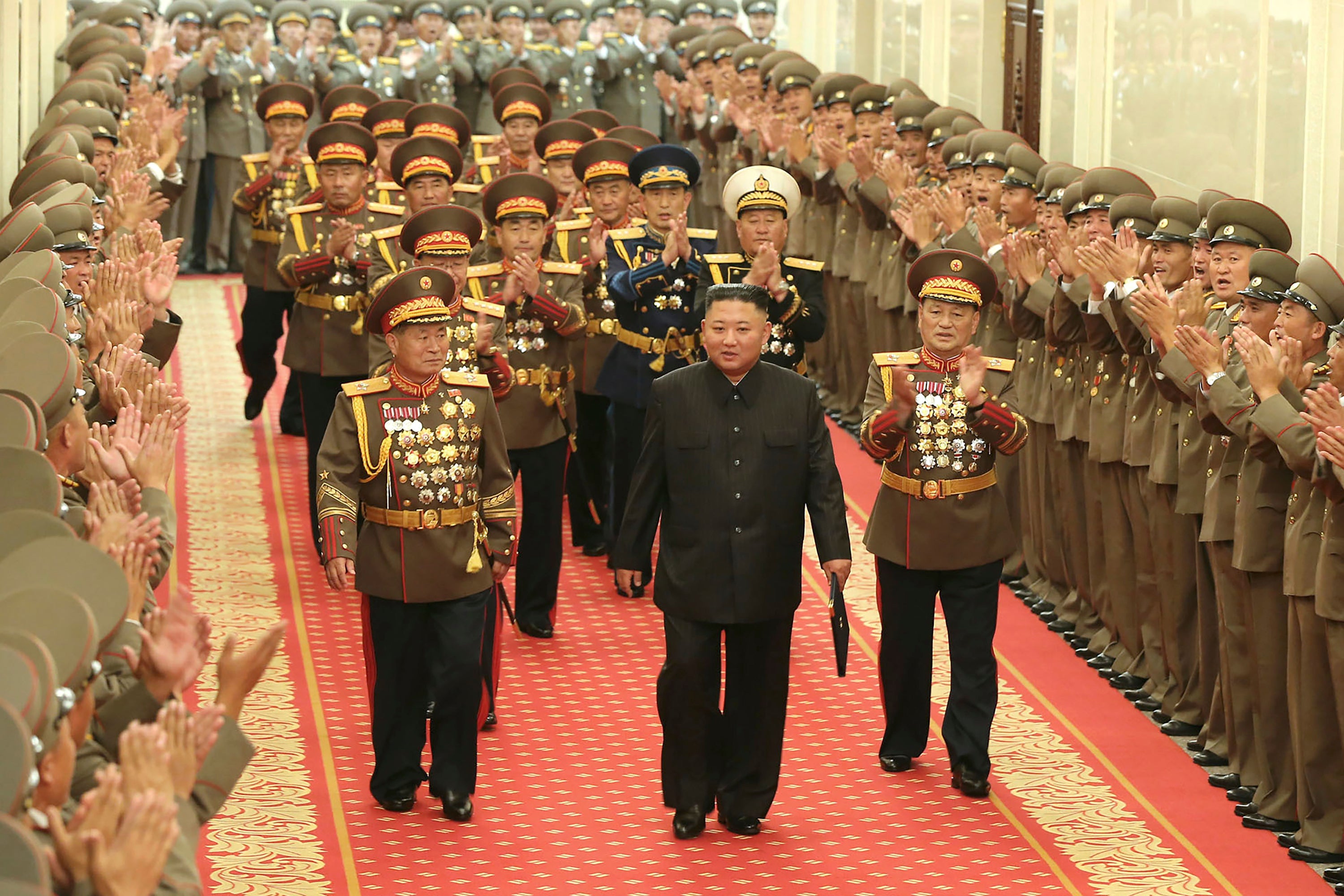North Korea releases wartime rice reserves amid food crisis
Seoul’s intelligence service says climate change effects appear to have hit crops, causing shortages

Your support helps us to tell the story
From reproductive rights to climate change to Big Tech, The Independent is on the ground when the story is developing. Whether it's investigating the financials of Elon Musk's pro-Trump PAC or producing our latest documentary, 'The A Word', which shines a light on the American women fighting for reproductive rights, we know how important it is to parse out the facts from the messaging.
At such a critical moment in US history, we need reporters on the ground. Your donation allows us to keep sending journalists to speak to both sides of the story.
The Independent is trusted by Americans across the entire political spectrum. And unlike many other quality news outlets, we choose not to lock Americans out of our reporting and analysis with paywalls. We believe quality journalism should be available to everyone, paid for by those who can afford it.
Your support makes all the difference.North Korea has released military rice reserves to tackle a food crisis in the country, South Korea’s spy agency has said, as a heatwave and drought hit food supplies.
The national intelligence service (NIS) of South Korea told a closed-door parliamentary committee meeting that its neighbour was supplying rice reserved for wartime uses to citizens left with little food, other labourers and rural state agencies, one of the politicians there told AP.
Another politician quoted the intelligence service as saying North Korea was running out of its grain stockpiles.
A heatwave and drought have reportedly wiped out rice, corn and other crops and killed livestock in North Korea. The food crisis is also exacerbated by years of economic mismanagement.
The NIS said North Korea’s leadership views fighting the drought as “a matter of national existence” and is focusing on increasing public awareness of its campaign.
It’s believed Pyongyang’s leaders want international sanctions banning its metal exports and imports of refined fuel and other necessities lifted before it restarts denuclearisation talks with the US.
North and South Korea last week agreed to reopen a communications hotline that was cut last year by Pyongyang as relations deteriorated between the two countries.
The UN Security Council has imposed a wide range of sanctions on North Korea for pursuing its nuclear and ballistic missile programmes in defiance of UN resolutions. Pyongyang has conducted six nuclear tests since 2006 and test-fired missiles capable of hitting the US.
The economic sanctions imposed by the international community and the border closure with China because of the Covid-19 pandemic have intensified the food crisis.
North Korea is thought to have produced about 4.4 million tonnes of grain last year, around 240,000 tonnes lower than a year earlier, according to the Korea Development Institute, a state-run South Korean think tank. It says the secretive communist country normally needs at least 5.7 million tonnes of food to feed its 26 million population. This means the expected food shortage is due to reach more than 1.3 million tonnes this year.
Grain prices have jumped in recent weeks, with the price of corn allegedly rising by at least 22 per cent.
The price of rice, the most important crop in North Korea, doubled earlier this year, briefly stabilised in July then soared again, the NIS reported.
The Seoul politicians said North Korea was trying to control the price of grains to which its public is most sensitive.
The crisis has not spared even well-off citizens, and residents of Pyongyang reportedly stopped receiving food rations last April. The ethnic Chinese, who have strong connections across the border with China and have been using them to secure food supplies, struggled to sustain what they needed to fend off the crunch.
In a report in June, the UN Food and Agriculture Organisation said imports were unlikely to be enough to close the food gap, which could be equivalent to more than two months’ supply of food.
During a key ruling party meeting in June, North Korean leader, Kim Jong Un, urged officials to find ways to boost agricultural production, saying the food situation was “now getting tense”. Earlier, he even compared the pandemic-related difficulties to a 1990s famine that killed hundreds of thousands.
A high-ranking source claimed that North Korea revealed its domestic food situation through the UN after deciding to accept international food aid, said Daily NK news site.
Kwon Tae-jin, an expert at the private GS&J Institute in South Korea, said North Korea’s crisis would continue until it harvests corns, rice and other grains in September and October.
Other experts say China, North Korea’s main ally and aid benefactor, is unlikely to let a massive famine happen. They say China worries about North Korean refugees flooding over the border or the establishment of a pro-US, unified Korea on its doorstep.
Additional reporting by AP


Join our commenting forum
Join thought-provoking conversations, follow other Independent readers and see their replies
Comments